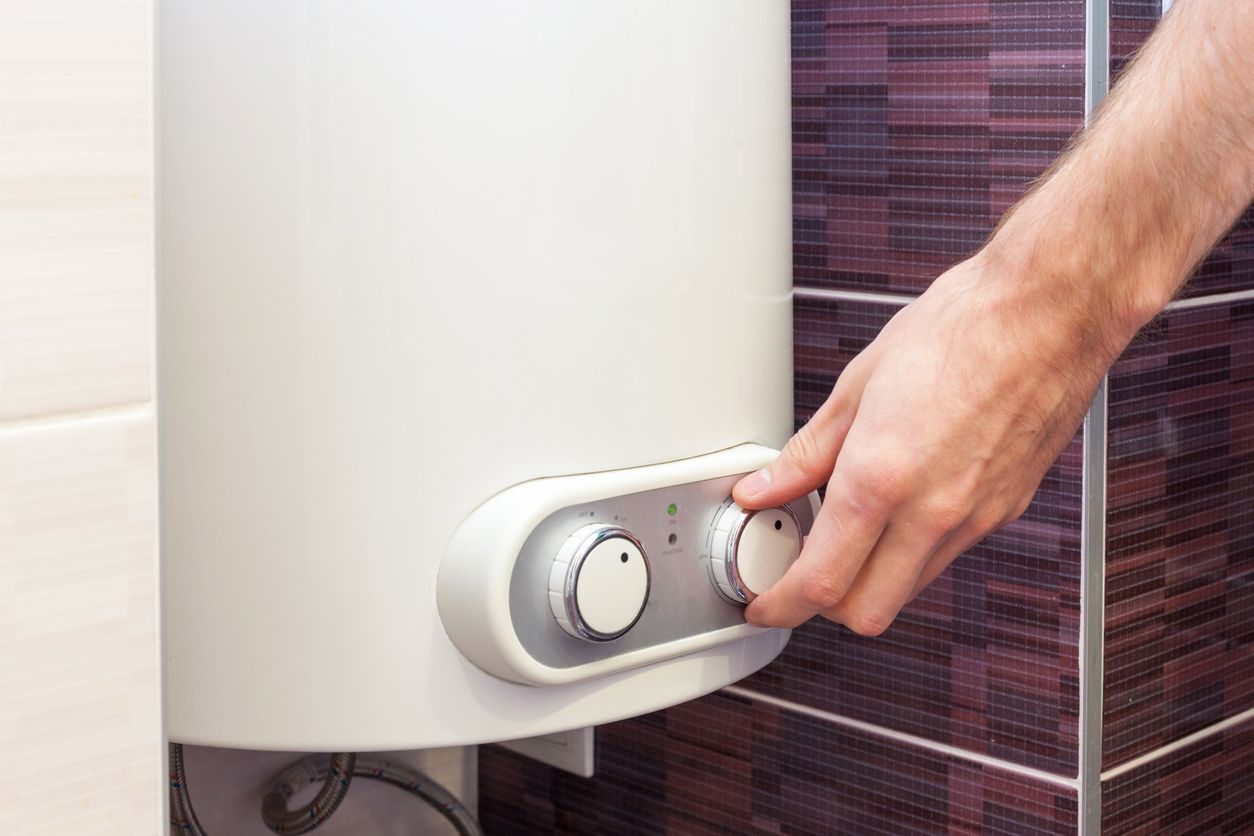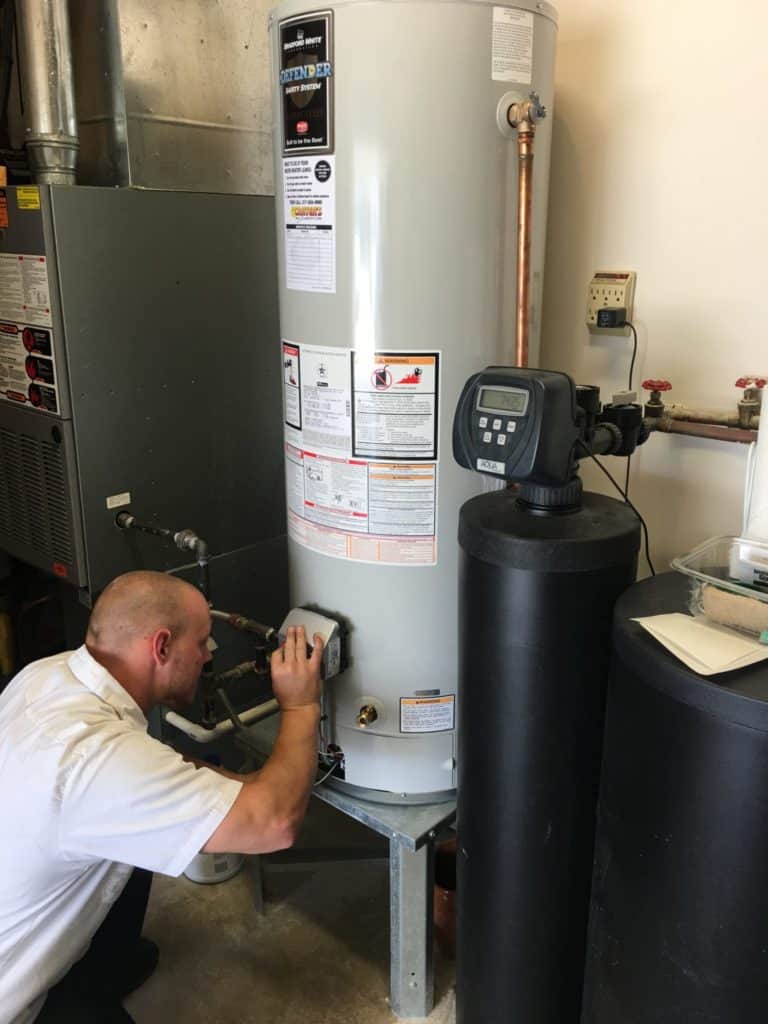Tackling the Most Prevalent Heater Urgent Issues
Tackling the Most Prevalent Heater Urgent Issues
Blog Article
The content listed below pertaining to Warning Signs You Need Water Heater Repairs is extremely entertaining. Read it yourself and figure out what you think about it.

A water heater is one of the most essential basic devices that can be located in a house. With hot water heater, you do not need to undergo the anxiety of heating water manually every single time there is a requirement to wash, wash, or the meals. There is constantly a possibility that your water heating unit would certainly act up as with the majority of mechanical gadgets.
It is essential to note any kind of little breakdown as well as tackle it promptly before points get out of hand. The majority of times, your water heater begins to malfunction when there is a build-up of sediments as a result of continuous use. As a safety measure, routine flushing of your water heater is recommended to stop sediment build-up and also prevent practical failure.
Usual water heater emergencies and how to deal with them
Leaking hot water heater tank.
In this situation, you ought to transform off your water heater, allow it to cool down, as well as carefully look for the resource of the trouble. At times, all you require to do is to tighten up a couple of screws or pipeline connections in situations of minor leaks. If this doesn't function and the leakage persists, you could require to utilize the solutions of a specialist for an appropriate substitute.
Rising and fall water temperature.
Your water heating unit could begin generating water of different temperatures usually ice cold or scalding hot. There may be a demand to replace either the heating or the thermostat device of your water heating system.
Too little warm water
It may be that the water heating unit can't support the warm water need for your house. You could update your water heater to one with a bigger capability.
Stained or odiferous water
You require to understand if the concern is from the water or the storage tank source when this takes place. If there is no funny smell when you run cold water, after that you are particular that it is your hot water heater that is defective. The odiferous water can be caused by corrosion or the accumulation of bacteria or sediments in the water heater storage tank. You can attempt flushing out your storage tank or replacing the anode if the problem persists when you notice this. The feature of the anode is to clean out microorganisms from your container. Considering that the anode pole substitute calls for an extensive understanding of your water furnace, you will certainly require the assistance of a professional.
Verdict
Some homeowners overlook little warning as well as minor faults in their hot water heater system. This only leads to additional damages and a feasible complete break down of your home appliance. You should deal with your hot water heater mistakes as soon as they come up to stay clear of more expenses as well as unneeded emergency difficulties.
With water heaters, you don't require to go with the stress of heating water by hand every time there is a requirement to take a bathroom, do the washing, or the meals. Your water heating system can begin producing water of different temperature levels typically ice chilly or scalding warm. It may be that the water heating unit can't support the hot water need for your home. If there is no amusing scent when you run cool water, after that you are particular that it is your water heating system that is faulty. The odiferous water can be caused by corrosion or the accumulation of microorganisms or debris in the water heating unit container.
What’s Wrong With My Water Heater?
Not Enough Hot Water
You probably encounter this problem in the shower or while washing dishes. As you run your water, you’ll notice it starting to cool down. Turning up the hot faucet may not work, or it may only heat the water for a short period. Your hot water probably comes back and works normally one or two hours after you use it up.
If you’ve never had enough hot water, your heater may be too small for your home. If you haven’t had a problem until recently, there’s probably something’s wrong with your heater’s thermostat. Try adjusting it to see if you can feel a difference. Even if the thermostat’s working, the heating element itself could have burnt out. It’s also possible that a clog has restricted water flow into or out of the heater. Luckily, none of these problems are hard to fix, as long as you call them in early.
Water is Too Hot
Unregulated water heaters can make water dangerously hot. You probably have this problem if you’ve been scalded by your hot water. It’s also a likely culprit if you have trouble getting your faucets to produce a comfortable temperature. This problem is easy to fix, but it can also be a serious health hazard if you don’t address it. If you think your water is too hot, don’t doubt yourself; look into it!
Start by finding your heater’s thermostat and mark its position with a pen. Turn the thermostat to a cooler setting. Wait a couple hours to see if the problem is solved. If it isn’t, listen for boiling in the tank and look for water that comes out of the faucet steaming. In those cases, your temperature-pressure relief valve may be malfunctioning. This is a serious problem that can be dangerous, so you should have it looked at right away.
Discolored or Smelly Water
If all your water looks rusty or smells weird, there’s probably a problem with your pipes. If only your hot water looks weird, however, your water heater is probably at fault. Hot water discoloration comes in several varieties. It could look orange or brown-ish, taste rusty, or feel grainy. It could also look yellow or green-ish and taste gross or feel slimy. Either way, it’s a sign that there’s something wrong with your water heater’s tank.
Usually, hot water discoloration means sediment has built up in your tank. Sediment is made up of hardened minerals that accumulate on the inside of the water heater’s walls. When enough sediment builds up, it causes all kinds of problems–including your discolored water. Try flushing your water heater tank to clean out built up sediment. If the water still tastes rusty, your tank’s rust-preventing anode rod may have worn out. A pro can replace an anode rod easily, but without one, your tank could rust beyond repair relatively quickly.
Leaking
Water heaters can leak from several different places, and each leak means something different. If the leak is coming from a pipe above the heater, it’s possible the tank itself hasn’t been compromised. The cold inlet, hot outlet, and T&P pipes could all leak from above. Try tightening the problematic valve. If that doesn’t work, then the valve or pipe will have to be replaced.
If the leak is coming from the bottom of the tank, it’s important to determine exactly where it is. The leak could be coming out of the drain valve or your T&P valve below the tank. You can replace those valves and preserve the tank itself. If you notice the water tank itself leaking, however, that probably means it’s corroded beyond the point-of-no-return. Leaking water heaters are a big deal, so you should get yours replaced ASAP.
https://www.punctualplumberdallas.com/blog/whats-wrong-water-heater/

Hopefully you enjoyed our post about Is Your Water Heater Leaking?. Many thanks for taking a few minutes to read through our blog post. Sharing is caring. You just don't know, you will be doing someone a favor. We treasure reading our article about Is Your Water Heater Leaking?.
Ensure plumbing integrity; reach out. Report this page